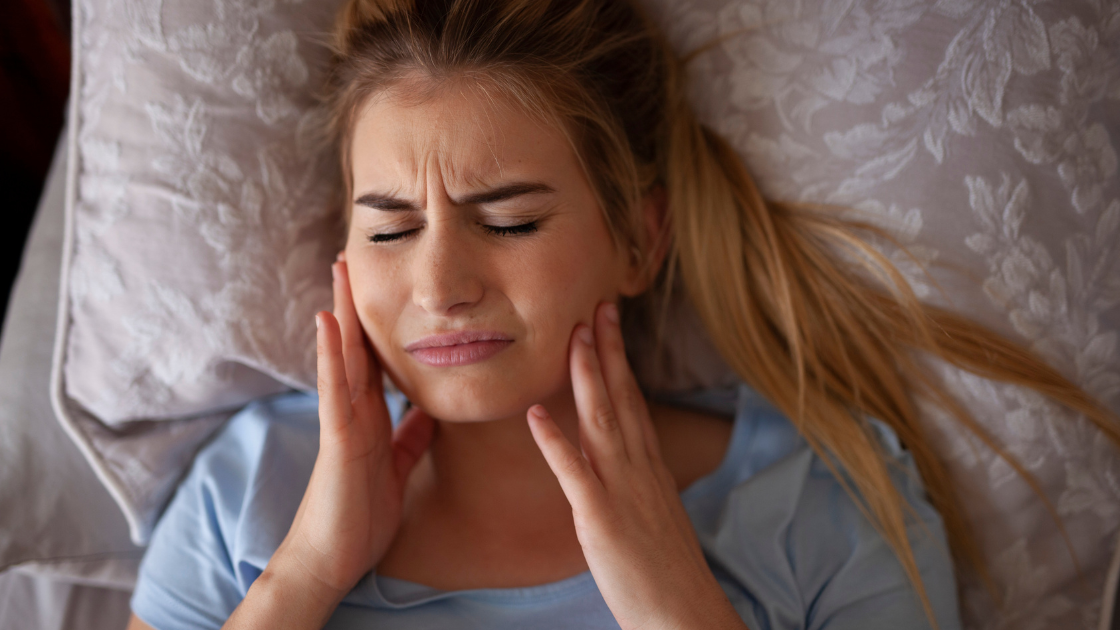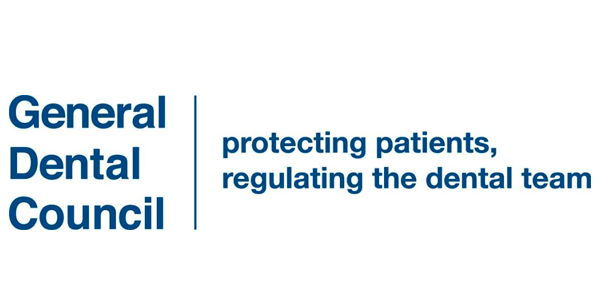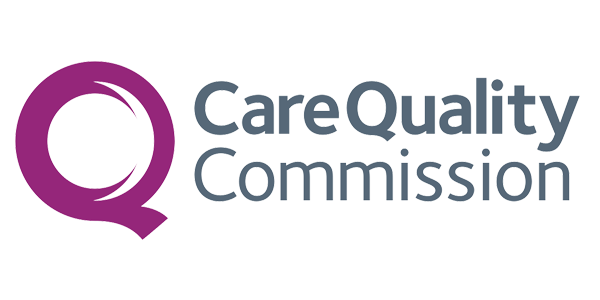Grinding your teeth while you sleep is also known as Bruxism, it’s a common disorder which can cause you to have a sore jaw, facial pain and headaches. The clenching of your teeth and grinding, if left untreated, can damage your teeth and could mean you need dental treatment to restore them.
Why you grind your teeth could be a combination of factors, these combination of factors cause two types of bruxism. We will go through the causes, types of bruxism and the treatment options for bruxism at Ewan Bramley Dental Care.
What happens when you grind your teeth?
Teeth are made of multiple layers of hard and soft tissues; Enamel, dentin and other strong particles. When you grind your teeth, you’re little by little chipping away at the structure of your teeth.
Over time, without treatment, your teeth will wear down and begin to cause bigger issues with your oral health. The longer you grind your teeth the worse it gets.
What happens when you don’t get treatment for bruxism?
- Loss of enamel: If you grind your teeth over and over again you remove layers of your tooth enamel. This makes your teeth more sensitive and susceptible to tooth decay and cavities.
- Fractured teeth: The pressure of grinding can end up cracking or fracturing your tooth. If this happens you may have to have the tooth extracted or a root canal.
- Yellow teeth: Grinding your teeth can prematurely age your teeth causing them to yellow.
- Gum recession: The amount of force created by grinding can push the gums away from the teeth and cause gum recession. Gum recession is irreversible and can lead to decay as bacteria gathers in the recessed gums.
- Temporomandibular joint disorder (TMD): Pressure on your TMD joint can lead to ongoing pain the joint muscles, clicking or popping of the jaw, it can also lead to difficulty chewing and sometimes speaking.
- Migraines: The pressure on your facial muscles from grinding your teeth can cause tension headaches and migraines.
You can be at higher risk of some other medical condition if you grind your teeth. We haven’t been able to find the exact link between these conditions and bruxism and/or sleep apnea but you are at higher risk of:
- Chronic kidney disease
- Depression
- Sleep-disorder breathing
- Behavioural problems in children
- Gastroesophageal reflux disease
Types of grinding
Bruxism can now be split into two distinctive types of grinding; Awake Bruxism and Sleep Bruxism. However, they still have the same affect on teeth and should be treated.
Awake Bruxism, as you have probably guessed, is grinding that occurs when you’re awake. You might catch yourself suddenly clenching your teeth or involuntary grinding when watching the TV or concentrating at your desk. It has been linked to emotions such as anxiety, stress, anger, frustration and concentration.
Sleep Bruxism is grinding at night and can be caused by the quality of your sleep, if you’re woken up during the night for any reason it could cause you to grind your teeth.
Causes of Bruxism
We can’t pinpoint the exact cause of Bruxism because it is caused by a combination of factors and every single persons case is a little different. Research into Bruxism is quite complicated and controversial however there are three basic sets of factors that we know to cause bruxism:
- Peripheral Factors – these are factors like misaligned teeth or missing teeth, if your jaw isn’t lined up correctly it could cause or contribute to TMD pain.
- Psychosocial Factors – teeth grinding often happens in people who deal with depression, high levels of stress and anxiety. However the research into these factors can not draw a direct conclusion.
- Central Factors – this means issues with your internal systems like the central nervous system that maybe causing grinding, at nighttime it could be sleep arousals (where you are awakened during your sleep). There is a link to the brain neurotransmitters and the act of grinding, the part of your brain that communicates movement of the body seems to be disrupted in bruxism. Certain medications can also be a factor of bruxism.
How do I know if I’m grinding my teeth at night?
You will normally experience symptoms like the below but the best way to see if you are grinding is to speak to your dentist. They will be able to examine your teeth for things like tooth wear or flattened teeth.
Common symptoms of teeth grinding are:
- Daytime sleepiness
- The need to urinate in the middle of the night
- Snoring
- Waking up frequently at night
- Jaw pain or clicking in the jawbone when you open your mouth
- Chronic headaches
- Tooth sensitivity
Treatment for Bruxism
There are some treatments for bruxism however there is no particular cure due to it’s complicated diagnosis. Depending on your symptoms some treatments may include but are not limited to:
- Night Guard – this will be the first thing dentists prescribe, it is basically a mouth guard which you wear at night time that protects your teeth from the grinding.
- Botox injections – surprisingly, botox injections can help bruxism as it acts as a paralytic to your jaw muscles and this is a treatment we can provide in-house with our Facial Aesthetics Practitioner, Harriet. Book in for a free consultation with her to discuss this in more detail.
- Sleep apnea treatment – if it’s sleep apnea thats causing your bruxism then you will normally be prescribed a positive airway pressure machine as a first line of treatment. There are other treatment methods for sleep apnea such as; positional therapy or mouth taping which your doctor will discuss with you.
- Relaxation techniques – if you are grinding your teeth due to high levels of stress then trying relaxation techniques to de-stress can help resolve it; breathing, meditation, mindfulness, yoga and other practices are good to start with.
If you think you are grinding your teeth during your sleep, book a free consultation with Ewan and he can give you treatment options to get you back to a good nights sleep!
Call our reception team on 0191 259 6506 or email us at reception@ewanbramley.com.






